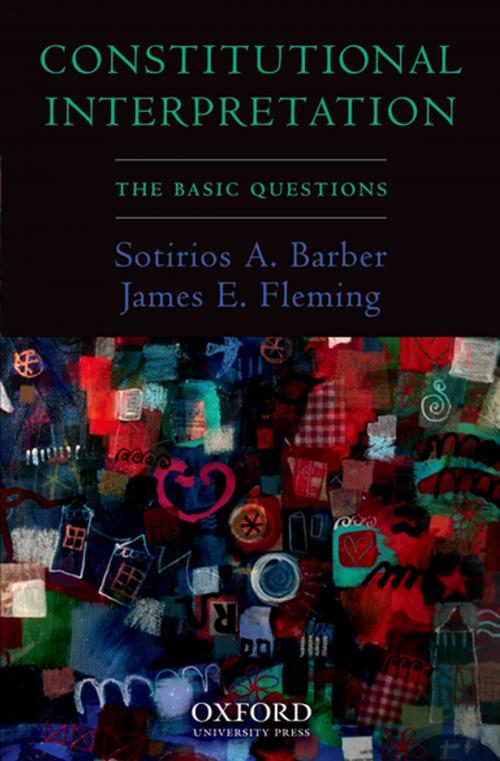Constitutional Interpretation
The Basic Questions
Nonfiction, Reference & Language, Law, Jurisprudence, Constitutional| Author: | Sotirios A. Barber, James E. Fleming | ISBN: | 9780199746309 |
| Publisher: | Oxford University Press | Publication: | July 5, 2007 |
| Imprint: | Oxford University Press | Language: | English |
| Author: | Sotirios A. Barber, James E. Fleming |
| ISBN: | 9780199746309 |
| Publisher: | Oxford University Press |
| Publication: | July 5, 2007 |
| Imprint: | Oxford University Press |
| Language: | English |
Ronald Dworkin famously argued that fidelity in interpreting the Constitution as written calls for a fusion of constitutional law and moral philosophy. Barber and Fleming take up that call, arguing for a philosophic approach to constitutional interpretation. In doing so, they systematically critique the competing approaches - textualism, consensualism, originalism, structuralism, doctrinalism, minimalism, and pragmatism - that aim and claim to avoid a philosophic approach. Constitutional Interpretation: The Basic Questions illustrates that these approaches cannot avoid philosophic reflection and choice in interpreting the Constitution. Barber and Fleming contend that fidelity in constitutional interpretation requires a fusion of philosophic and other approaches, properly understood. Within such a fusion, interpreters would begin to think of text, consensus, intentions, structures, and doctrines not as alternatives to, but as sites of philosophic reflection about the best understanding of our constitutional commitments. Constitutional Interpretation: The Basic Questions, examines the fundamental inquiries that arise in interpreting constitutional law. In doing so, the authors survey the controversial and intriguing questions that have stirred constitutional debate in the United States for over two centuries, such as: how and for what ends should governmental institutions and powers be arranged; what does the Constitution mean under general circumstances and how should it be interpreted during concrete controversies; and finally how do we decide what our constitution means and who ultimately decides its meaning.
Ronald Dworkin famously argued that fidelity in interpreting the Constitution as written calls for a fusion of constitutional law and moral philosophy. Barber and Fleming take up that call, arguing for a philosophic approach to constitutional interpretation. In doing so, they systematically critique the competing approaches - textualism, consensualism, originalism, structuralism, doctrinalism, minimalism, and pragmatism - that aim and claim to avoid a philosophic approach. Constitutional Interpretation: The Basic Questions illustrates that these approaches cannot avoid philosophic reflection and choice in interpreting the Constitution. Barber and Fleming contend that fidelity in constitutional interpretation requires a fusion of philosophic and other approaches, properly understood. Within such a fusion, interpreters would begin to think of text, consensus, intentions, structures, and doctrines not as alternatives to, but as sites of philosophic reflection about the best understanding of our constitutional commitments. Constitutional Interpretation: The Basic Questions, examines the fundamental inquiries that arise in interpreting constitutional law. In doing so, the authors survey the controversial and intriguing questions that have stirred constitutional debate in the United States for over two centuries, such as: how and for what ends should governmental institutions and powers be arranged; what does the Constitution mean under general circumstances and how should it be interpreted during concrete controversies; and finally how do we decide what our constitution means and who ultimately decides its meaning.















